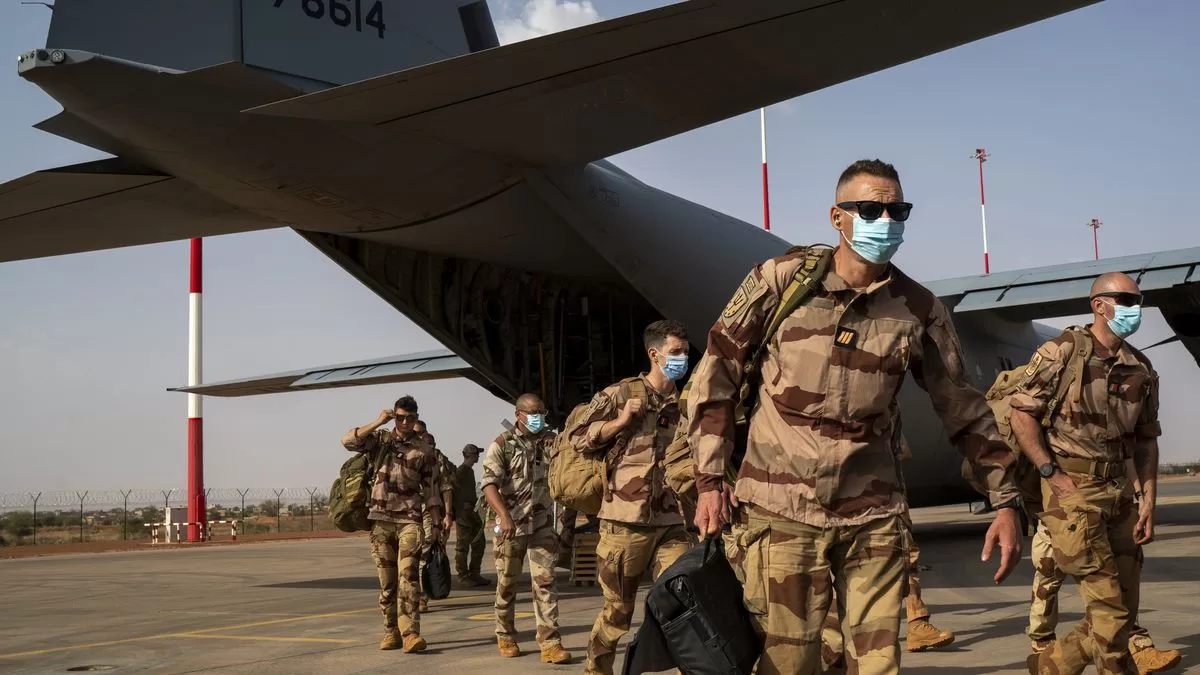Two days before the deadline set by the regional bloc for President Mohamed Bazoum to be released and reinstated in power, the coup junta announced that it would dismiss some of the main ambassadors of the previous government and asked the citizens Nigerians to stay alert against spies and foreign armies. In a petition published in an op-ed in The Washington Post, Bazoum said, “I am writing this as a hostage,” and appealed to the United States and allies for help.
The announcement issued by the junta late Thursday deepens the isolation following the coup in which it was the last major security partner for the United States and its allies in the Sahel, the vast region south of the Sahara desert that Islamic extremist groups have become a global center of terrorism.
The Nigerien military, which mutinied on July 26, was given until Sunday to comply with the demands of the Economic Community of West African States (ECOWAS), whose envoys arrived on Thursday for talks. But discussions stalled and the delegation was unable to meet coup leader Gen. Abdourahmane Tchiani or travel to the capital Niamey, according to a person close to the talks who spoke on condition of anonymity because she was not authorized to comment.
However, the defense heads of the ECOWAS countries, except for Mali, Burkina Faso, Chad, Guinea and Niger, met in Abuja, Nigeria, where they agreed on various measures, including military intervention, which were defined as recommendations for the rulers of the region.
“All the elements considered for any possible intervention were raised and refined, including the moment, the necessary resources, and how, where and when we are going to deploy said force,” said Abdel-Fatau Musah, commissioner for political affairs, peace and the security of ECOWAS.
Musah did not say whether ECOWAS would deploy its force when the one-week deadline given to the junta expires, but added that the coup leaders must reinstate Bazoum as president in the coming days or “we will have him handed over to the civil authorities.”
The Nigerian chief of defense staff asked his regional counterparts to adhere to “a sense of urgency” and allocate the necessary resources as agreed between them.
“ECOWAS will not be used to carry out coups. Democracy is what we stand for, and democracy is what we will uphold,” said Christopher Musa, Nigeria’s defense chief. Musa also called for measures to address security failures in West Africa, noting that the latest uprising highlights “the fragility of our region.”
The meeting’s announcement increased skepticism about the possibility of reaching an agreement. The coup leaders said they had decided to put an end to the military agreements and protocols signed with France and announced the dismissal of Niger’s ambassadors in France, the United States, Togo and neighboring Nigeria, which leads ECOWAS efforts for dialogue.
“Any aggression or attempted aggression against the State of Niger will face an immediate response and without warning,” said a spokesman for the coup leaders, Colonel Major Amadou Abdramane, with the exception of Mali, Burkina Faso and Guinea, which have indicated their support. to the military coup. Mali and Burkina Faso have claimed that an intervention against Niger would amount to a declaration of war against them.
___
Asadu reported from Abuja, Nigeria: Associated Press writers Elaine Ganley in Paris; Carley Petesch in Chicago and James Heintz contributed to this report.
FOUNTAIN: Associated Press


